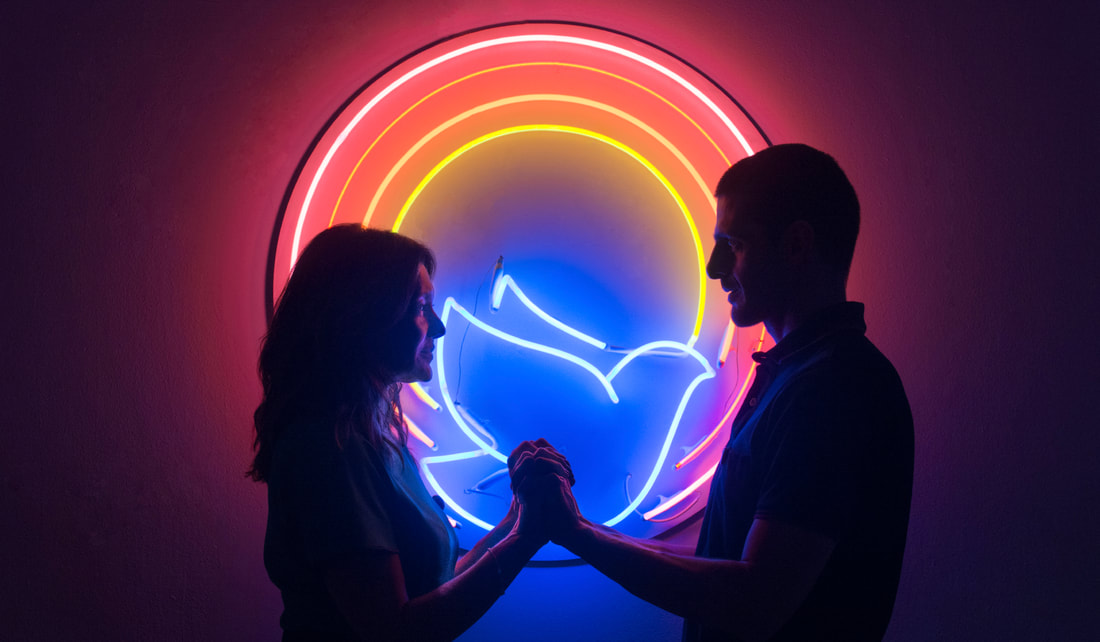|
Review by Sean Boelman
Brazilian genre cinema is having a bit of a renaissance as of late, the country’s filmmakers having delivered some of the most intriguing and ambitious sci-fi features in recent years. Gabriel Mascaro’s Divine Love does have a few too many moving parts, but it still offers some truly thought-provoking commentary.
Set in a not-too-distant future Brazil, the movie follows a woman who is part of a religious cult defined by late-night raves, ritualistic orgies, and fundamentalist Christianity. Not entirely abstract but also not taking the form of a traditional narrative, there is clearly a lot to dissect in Mascaro’s film. One of the things that defines Mascaro’s approach to the movie is unflinching length. Scenes last a lot longer than they probably should, but it creates an overwhelming feeling of discomfort. The element of voyeurism is turned up to eleven here, as the audience watches these rituals and acts which we seemingly wouldn’t be meant to see. That said, there is an odd, almost tongue-in-cheek sense of humor to Mascaro’s script. Things definitely get a lot darker heading into the final act, but as we are being introduced to the ways of the group, there is an inherent absurdity to some of the things happening, like an EDM dance party celebrating the love of Jesus.
Clearly, Mascaro is very critical of organized religion, but there is a lot more to the film than that. Those who think that America is the only country going through a conservative are blind to world politics. Of course, Mascaro’s world is a lot more extreme than what is happening right now, but it’s an effective allegory for where we could be heading if things don’t change.
The movie is also absolutely brilliant on a visual level. This is a lo-fi sci-fi that uses subtle differences in the production design to communicate that we are in the future rather than big, flamboyant sets. The cinematography by Diego García is great too, especially when it comes to the use of color. Admittedly, the film does struggle to create an attachment to the characters. More focus is put on immersing the viewer in this world as opposed to the people who inhabit it, and as a result, the movie doesn’t have as much of an emotional impact as one would anticipate. The portion of the film that explores the protagonist’s desire to have a child simply doesn’t connect. Divine Love is going to put some off because of its extreme content and overt politics, but that’s okay. It’s a fascinating and gorgeous sci-fi allegory that will find its audience among the core art house crowd, even if it struggles to connect with general audiences. Divine Love is now in theaters and on virtual cinemas. A list of participating locations can be found here. Rating: 4/5
0 Comments
Leave a Reply. |
Archives
July 2024
Authors
All
|
|
|
disappointment media
Dedicated to unique and diverse perspectives on cinema! |


